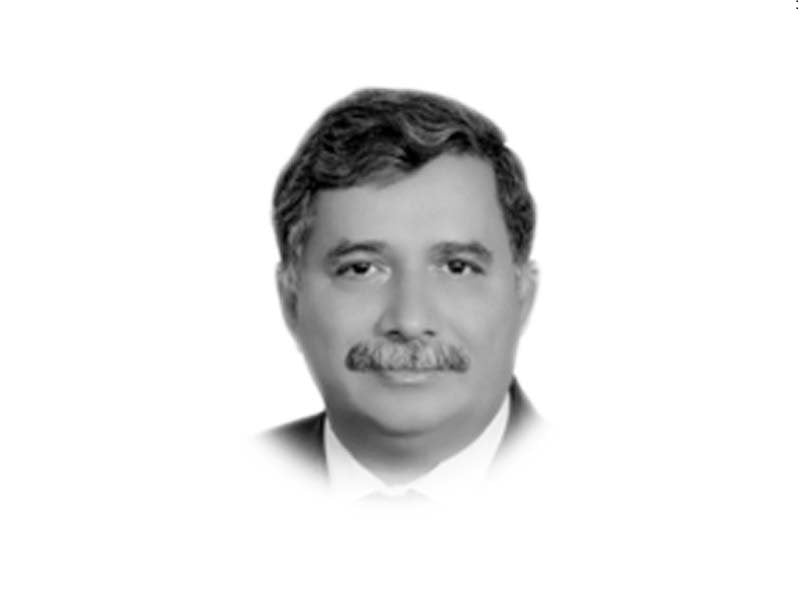
Horrific and heart-rending scenes were observed during the blast in Police Lines Peshawar. It wasn’t just the people caught in the attack that were bleeding but an atmosphere of fear and gloom had enveloped the entire city, as citizens began to question how an attacker entered the most secure area of Peshawar.
Although incidents of terrorism are nothing new for the region, the martyrdom and injuries of hundreds have sent shock waves among the population. The reaction of the public, in particular the police force, not just on social media but also on the streets, raising slogans, “yeh joo naa maloom hain, humain maloom hain,” has been the most alarming. Pointing fingers at a particular institution is extremely dangerous as it weakens the state apparatus.
While gauging the mood and pulse of the population, one can perceive that they are no longer ready to tolerate another incident of this kind. Peace rallies arranged on 4 February called not just for peace and security but also for abandoning militant organisations and the old Afghan policy based on strategic depth. Sensing the public outrage against the scourge of terrorism and policy of appeasement, the Prime Minister chaired a meeting of the apex committee — attended by all other parties except PTI. The outcome of meeting was to adopt a uniform counter-terrorism strategy for the elimination of terrorists and their facilitators, abolish all sources assisting terrorists in the country through effective screening, and a zero-tolerance approach against all kinds of terrorism as the national motto.
The decisions of the apex committee portray a clear sense of direction and urges all stakeholders to combat terrorism in a collective manner. But, skeptics are critical about ambiguity in the national policy and absence of a clear strategy to end terrorism. Moreover, whenever an incident of such magnitude occurs, calls are given for national consensus and unity without anything significant taking place after. This appears to be an escape from the responsibility.
Under the Constitution and rules of businesses, framing of the policy is the exclusive domain of the government, both federal and provincial. Therefore, shifting responsibility to others does not auger well. Provision of security and maintenance of peace are the prime and basic duties of a state. Any state lagging in those duties is either considered as a fragile or failing. As such, a state is required to ensure the rule of law for the preservation of peace.
In context of the aforementioned incident, K-P’s IGP has assured in his briefings that they have gathered sufficient evidence against the suicide attacker and his handler. Of course, from a police perspective, the progress appears laudable. But from a national perspective, the issue is not confined just to that specific incident.
Had this been a crime committed by a local gang, peace could have been brought by netting the gang. The problem here is multidimensional. The fact of the matter is that even with arrest of the handler and a few others, terrorism will persist.
Those at the policy level have to assess the real dimension and dynamics of this militancy crisis to come up with a proper strategy. It may be realized that a strategy has four major components. First, where we are, which acts as a base line. Second, a historical account of why we are here. Third, where do we want to go. Fourth, how? Under this framework, we have to evaluate and admit our past mistakes for future course correction.
Those dealing with the issue must also know that militants have their own well-conceived grand design to establish an Islamic Emirate. In pursuit of this, they use all means necessary, including violence, and rationalise it through the rhetoric of jihad. Considering this reality, it is crystal clear that the Constitution, the Anti-Terrorism Act 1997 and other laws in vogue neither allow the formation of armed non-state actors nor allow any acts of violence and glorification of terrorist organisations. It is high time the state moves with its full might against the menace of terrorism, leaving tactical details to operational commanders.
Published in The Express Tribune, February 8th, 2023.
Like Opinion & Editorial on Facebook, follow @ETOpEd on Twitter to receive all updates on all our daily pieces.



1732085354-0/insta-(1)1732085354-0-165x106.webp)

1725366721-0/kyle-(1)1725366721-0-165x106.webp)






COMMENTS (2)
Comments are moderated and generally will be posted if they are on-topic and not abusive.
For more information, please see our Comments FAQ